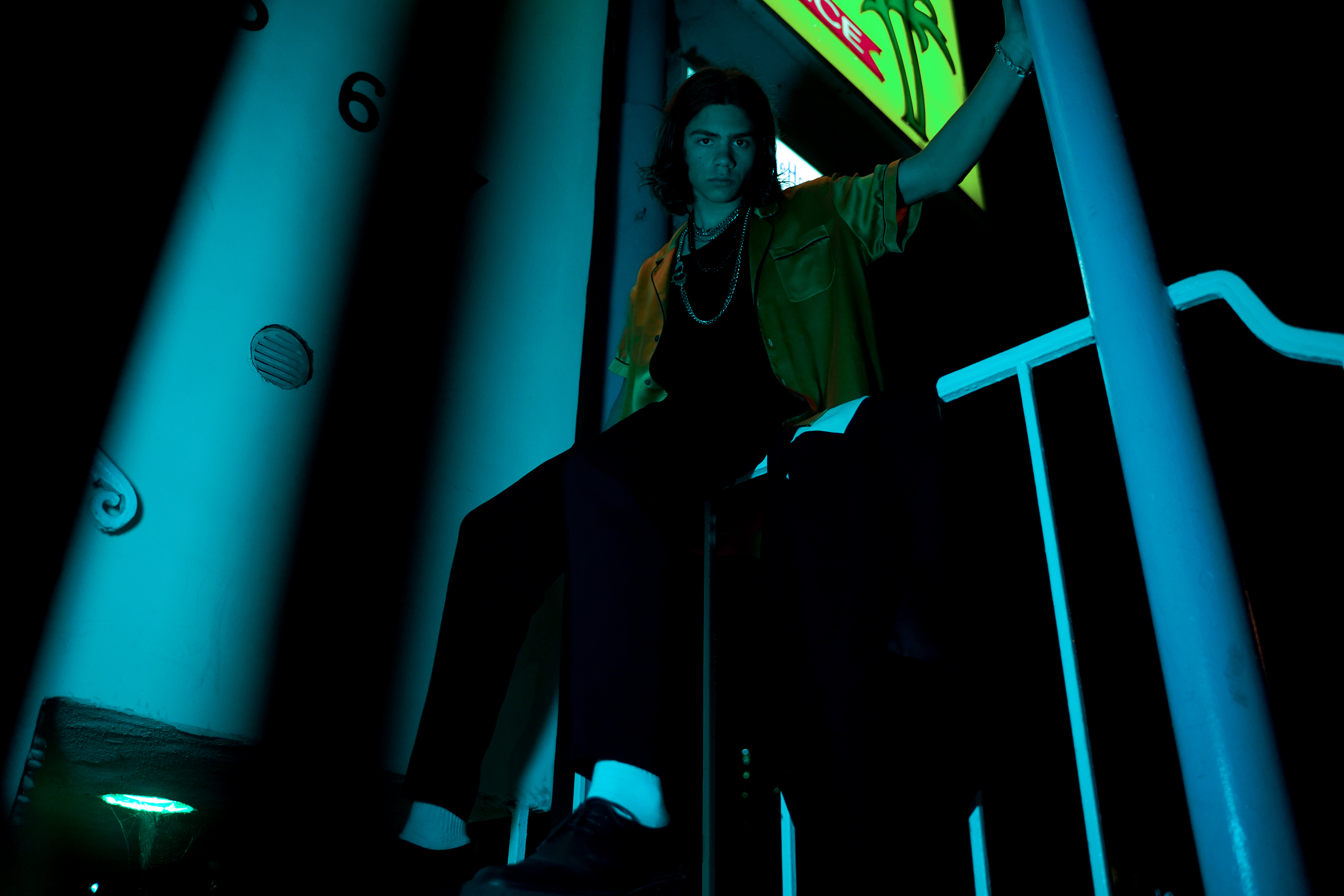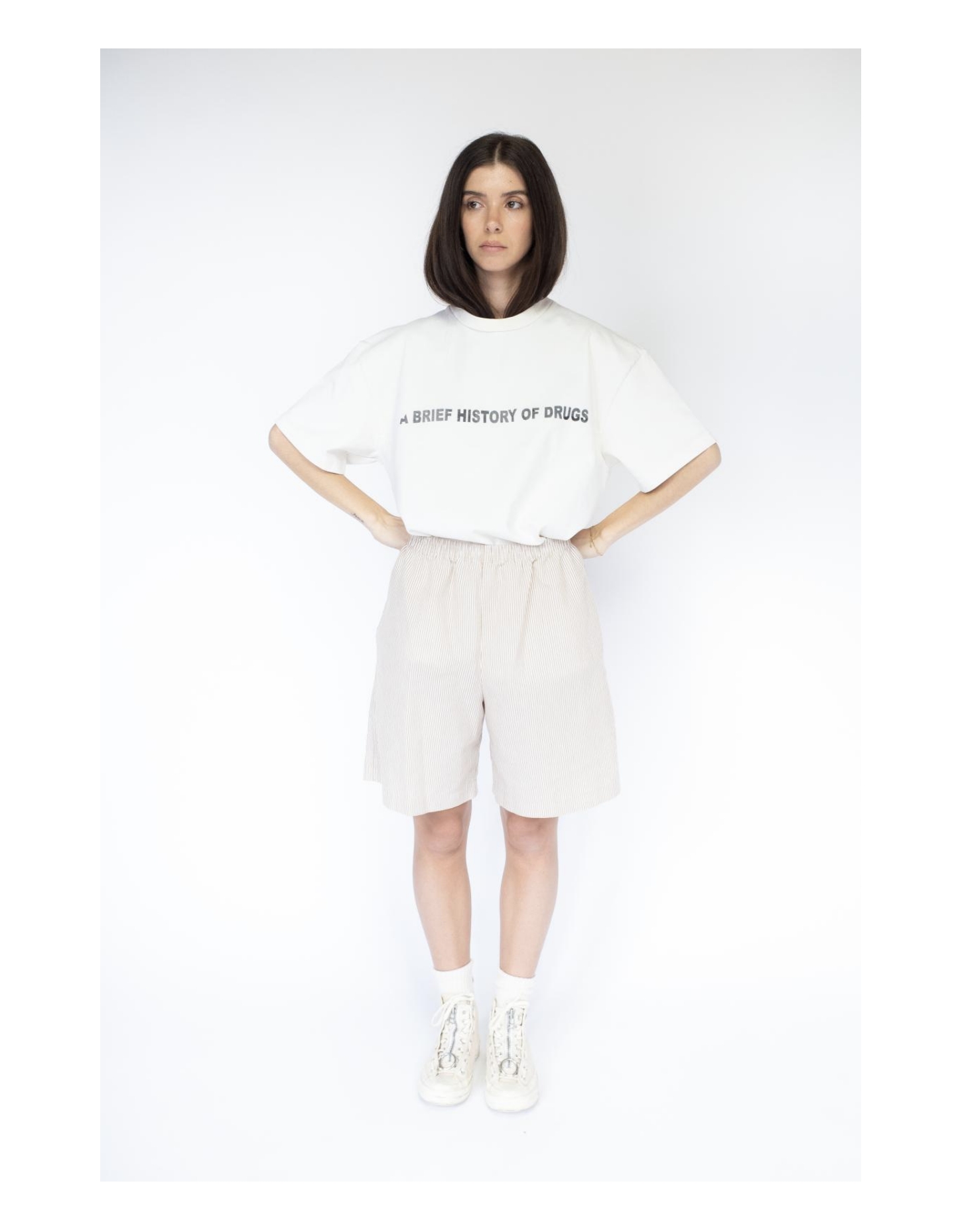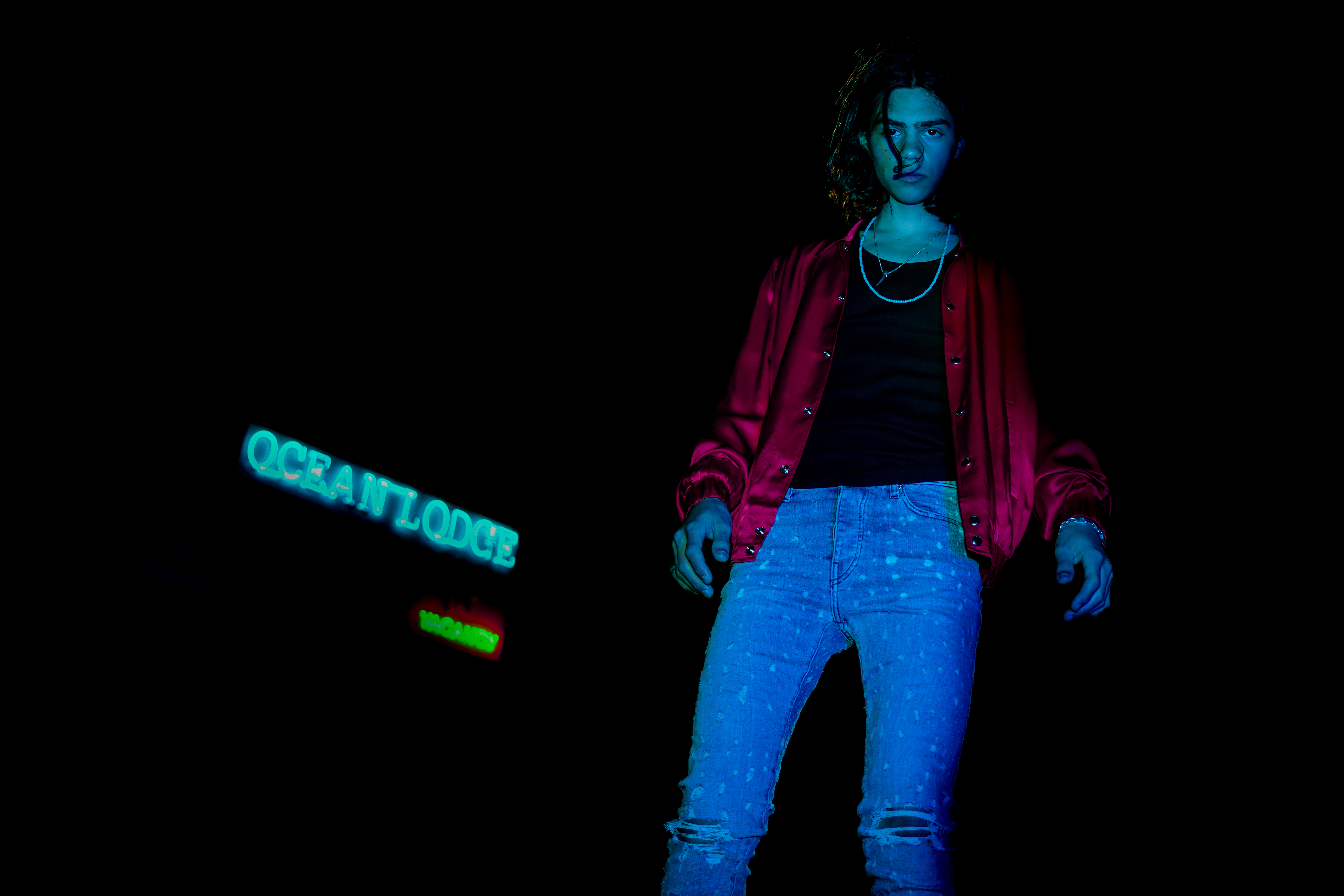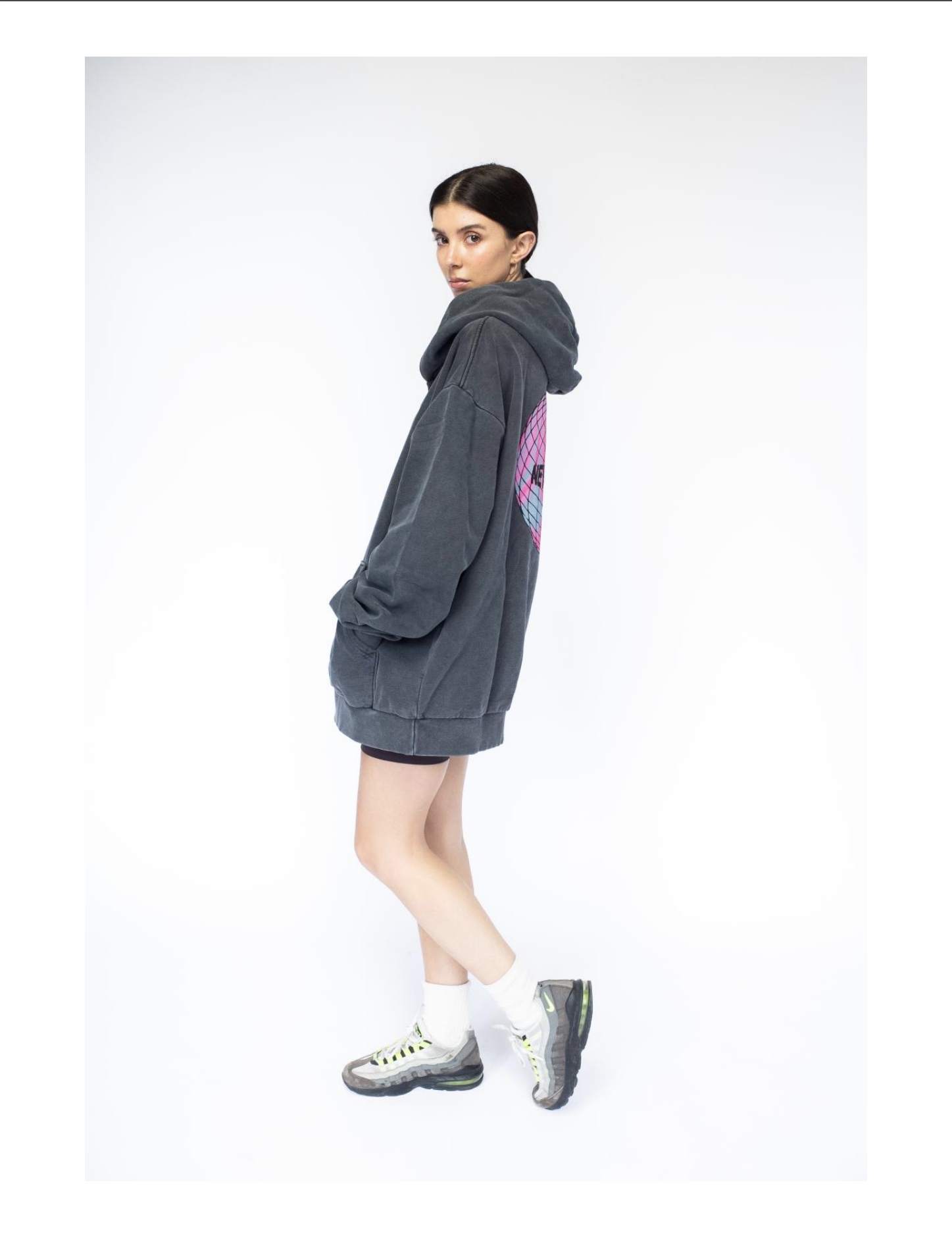Fashion, just like every industry at this point, has been hard hit by the COVID-19 pandemic. Even as the economy slowly begins to reopen, the damage done during the months-long global shutdown has already taken root. Early last month, the New York Times reported that the luxury department store Neiman Marcus would be filing for bankruptcy protection and closing a number of its stores nationwide. By May 28th, CNBC had reported that another retail giant, J.C. Penny, would close stores through the month of June, continuing throughout July.
The impact our flailing economy will have on your favorite small streetwear brands remains to be seen, but with supply chains disrupted and retail experiences altered for the foreseeable future, it seems like the months to come hold nothing but uncertainty for even the more coveted labels. If a luxury retailer like Neiman Marcus can fall, what’s stopping Supreme from having to close some of its stores?
Fortunately for streetwear labels, uncertainty is nothing new. Like independent restaurants, streetwear labels are small, nimble, and highly adaptable — used to finding ways to stay afloat in a cruel industry that has made pivoting quickly a feature rather than a flaw. So while COVID-19 has no doubt impacted every streetwear label no matter how big or small, some are rolling with the changes, finding new ways to connect with their audiences, and using this upheaval to transform an industry that was already in need of major changes.
Changes like sustainability, for example. We’ve covered the tremendous strain that the production process of our clothing has on the planet in the past, and ecological footprint was definitely on the minds of Marc Keiser and Joey Gollish — who head the Keiser Clark and Mr. Saturday labels, respectively — when I talked to them separately over the phone during lockdown. While speaking about the struggles their individual brands face during the COVID-19 pandemic, both Keiser and Gollish remained optimistic and eager to step up to the new challenges in creative ways, and hoped that this massive shift would lead to an industry made better by our new circumstances.
Check out our conversation below.
How has the impact of COVID-19 directly affected your label and what are you currently doing to stay afloat?
Joey Gollish (Mr. Saturday): The biggest thing is that it’s made us adapt and focus on what’s important. Tangibly, we were going to do our first presentation in Paris and obviously those plans have changed, so I think trajectory-wise that’s been the biggest thing for us. As far as staying afloat, it’s all about focusing our attention — we’re focusing on what’s important to the brand, and focusing on our retailers as partners, and focusing on our customers as people. We’re focusing on our core product, and focusing on delivering that experience for Mr. Saturday in new ways and ultimately focusing on the core principles of the business.
Marc Keiser (Keiser Clark): Our international sales team is heavily China-based, and we were back in Paris in January so we were very aware and paying attention to everything that was going on in China, our sales team was getting news from their family, through WeChat or social media. Business-wise, we noticed right away because we had a really good sales season coming out of Paris and a lot of that growth came from retailers in China and we were seeing a lot of those orders put on hold, reduced, or canceled in mid-February following Fashion Week. I kept talking to other designers and other buyers and they were like “no it really hasn’t affected our business at all, we haven’t seen any changes” and we thought, “oh damn, maybe it’s just us, maybe the collection wasn’t as good as I thought it was,” but as March came around the rest of the world caught on and then it hit the U.S. pretty hard.
I think in terms of how we’re reacting and how things are going, obviously, the retail side of things is taking a big hit. We kind of turned our office into almost a drop-ship. We reached out to all our retailers, created dropbox folders for them with the product images, product descriptions, price points and just told them like “Hey, feel free to put any of this up on your site, let us know if there is an order placed, and we’ll ship it directly from us.” In an effort to help them transition. Some of our retailers didn’t even have e-comm set up yet, so that was a huge help for them. Otherwise, I think obviously the retail orders for Autumn/Winter 20 have been cut, reduced, canceled entirely. That’s been a big hit for us in what was supposed to be a really big growth year.

What new types of challenges are you facing as a result of travel restrictions? I imagine that has an effect on photoshoots and promotional opportunities.
Joey Gollish (Mr. Saturday): Definitely that challenge came as soon as we tried doing this capsule, that’s why we started to work with creators that have been living together or are couples. We had a couple shoot that first editorial which I thought was super cool because it was amazing content that also reflected their period of transition right now. As far as travel, that’s super interesting for us because wholesale has been a big model for us. Learning what travel restrictions will be as market seasons come up is definitely on our radar. Whether domestic travel within regions is possible or whether it’s not and we’re going to have to rely on logistics and getting samples for our collection to keep harvest and keep them updated is on there.
Beyond that, just the supply chain slowing down and stopping, in general, is probably the biggest barrier to running our company right now, and I think that comes back to that idea of a new sense of adaptability. In the past, we’ve relied so heavily on just-in-time logistics to run an adaptable business that lets you use your cash flow and carry as little debt as possible and make moves quickly, but that’s not the case anymore. I think this idea of new adaptability for us actually means forecasting more and planning more long term so that we can actually act faster in moments when there is less access to that supply chain.

What are some of the new ways you’re trying to engage with your audience?
Joey Gollish (Mr. Saturday): The biggest thing for us right now is our Artist Relief Capsule collection. We had this capsule that was supposed to launch at a popup in Toronto in March. What we ended up having to do was release it with an editorial that was shot by this couple I know who is a model and photographer that live together and we put up the capsule to raise money for a relief fund and also to donate to our factories who are creating PPE and masks for health care professionals.
Marc Keiser (Keiser Clark): For me, it’s been great to talk with a lot of our customers through email, and ask them “how are you doing, how are you getting through this.” Personally, I like that side of things. I like that we’re taking a pause to connect with people. I think that’s something we’ll see hopefully shine through once this is all over.
With your change in the business model, how long do you think you can last like this?
Joey Gollish (Mr. Saturday): We’re going to continue to adapt and work with whatever reality exists for as long as we exist. We’re fortunate enough to be small enough to make core changes to our processes really quickly, that’s been a big advantage for us. At the core of that new approach now is a new sense of adaptability. I think we have plans that stretch to the end of 2020 right now and that’s pretty long term thinking for the moment.
Marc Keiser (Keiser Clark): I think the beauty of the fashion industry is that there is no one way to be successful, there is no one product or one style that is going to reign supreme. There are brands out there that have no retail business what so ever and they’re entirely successful. You have other brands that don’t have any direct to consumer set up and they’re killing it with their retail partners.
That’s the benefit of this industry, there are so many avenues of growth, so many avenues to success. I think it’s about diversifying those paths you are taking, I keep telling myself “When this is over when we get back to how things were…” and I think that’s the wrong mentality. This is the new normal, if we’re able to recover as a global economy in the coming months then we have the fear of the looming fall/winter COVID season. So I think for us it’s about how can we continue as a business to do this, how we can keep getting creative with retailers, how are we communicating with our direct to consumer customers.
In fashion, there is the business side of things and there is the brand side of things, and those cross over a lot, but for me the brand — that’s the luxury side of it, that’s the escape, that’s the dream. That hasn’t changed for us, the story we’re trying to tell through our designs hasn’t changed. It’s always been about connection and family. We’re seeing a lot of conversations, a lot of tensions between retailers and brands. When you’re facing an economic downturn or recession there is a lot of fear, how can we as a brand avoid that fear and avoid that selfish survival instinct and really work together with a wide array of people and customers to come out of it stronger than before?

Do you plan on making face masks as an accessory going forward?
Joey Gollish (Mr. Saturday): I don’t really have plans of making masks as an accessory, at least for the time being. It’s a pretty serious and important piece to make, and it’s not something that’s in my wheelhouse technically.
Marc Keiser (Keiser Clark): I think going into Spring/Summer 21 it’s definitely something we’re looking to include as part of a collection. I don’t know personally if that’s an item that we will be selling. It might be something we include with an order or something like that.
What are your plans for the future going forward? Can you have a pandemic proof plan?
Joey Gollish (Mr. Saturday): I don’t think anything is pandemic proof! Immediately we’re still super-focused on the FS 20 Artist Release Capsule… beyond that, experience is super important to me and we’re working on some new programs with our partners that bring that experience home for people and deliver it in new ways that adapt with our continuously evolving realities. The first part of that is going to launch in June and I’d like to say it’s pandemic proof but I think the biggest part of retooling our strategies was making adaptability at the core of all of them — so that no matter what’s happening we can retool that. We’re working on some cool experiences we can bring to customers or retail buyers and our partners either in their homes or in different ways.

Times of crisis often lead to huge shifts in culture, what lasting impact do you think Covid-19 will have on the streetwear scene, and what kind of big changes would you like to see made to the industry as a whole?
Joey Gollish (Mr. Saturday): I don’t necessarily think it’s going to result in a shrinking of the market, at least on the customer’s side, but I do think we’re going to see a tightening up as far as brands that are able to participate. I think the coolest thing though is kind of what you’re saying, crisis breeds mass shifts in culture, WWII created the teenager and that was one of the biggest consumer shifts we’ve ever seen, and now we’re in a new version of a crisis and I think that sustainability moving forward is actually going to be important.
From a utilitarian perspective it’s always been incredibly important, but I think that customer perspective is shifting, and now in a more real way than ever, caring has become cool, it’s kind of a unique opportunity to give the medicine to the masses and to create a sustainable product that will last longer and maybe that means people will be willing to pay the price for that, and they’ll be buying more long term and more consciously.
That’s the shift I’d like to see, and I’m kind of happy because I think in a way we’re sort of starting to see it already.
Marc Keiser (Keiser Clark): This is a question that I think about every day and every night and I’m not sure there is one answer. For us, it’s been an opportunity to look at the product we’re putting out into the world. This industry moves so fast, it’s crazy that for as long as I’ve been doing this — we officially launched last year in June with the autumn-winter 19 collection — to think of everything that’s happened in that time, is nuts and I think for us it’s given us an opportunity exploring more sustainable options, not only in the materials we use but also in the designs that we put out and the supply chains that we’re utilizing.
I think it’s going to have a major impact going forward, the world is calling for it, and I think especially now, with places like China, places like the US, where the pollution has gone down, the skies are the clearest then they’ve been in years. It’s such a telling side of the impact that we as humans are having on the environment and I think as we slowly start getting back, the world is going to be expecting more from us. The push on global warming, the push on the effect that we’re having on the environment, that’s something that the younger generation of consumers is very aware of. It’s something they’re being taught in schools and something that they’re seeing on social media at a young age.
On the business side of things, I think there is a lot of tension and testing that are going on between brands and retailers and I think people are starting to rethink how those relationships impact one another, but I think that’s a good thing.
The reality of the pandemic is horrible, if you really look into stories, you see what’s happening in New York, what happened in Wuhan- — it’s devastating. As much as we can joke about the challenges on Instagram or make light of it, or talk business, its the reality facing a lot of people. I read an article saying “no this is a good thing, there are too many brands out there are too many retailers” and from a cold heartened business standpoint, sure, but from a human element, there are people behind that.
That was somebody’s dream to start that business, that was somebody’s dream to start that brand, I know exactly how that feels, to do something that you love, and to pursue that passion. It’s hard to see how it’s impacting those people, how it’s impacting my family, my brother or his fiancee working in hospitals, how its impacting friends that have been laid off or furloughed. Personally, I hope the industry as a whole has a more human element that continues to shine through on all sides, that we’re not just a brand, we’re not just a consumer, we’re not just a customer.

